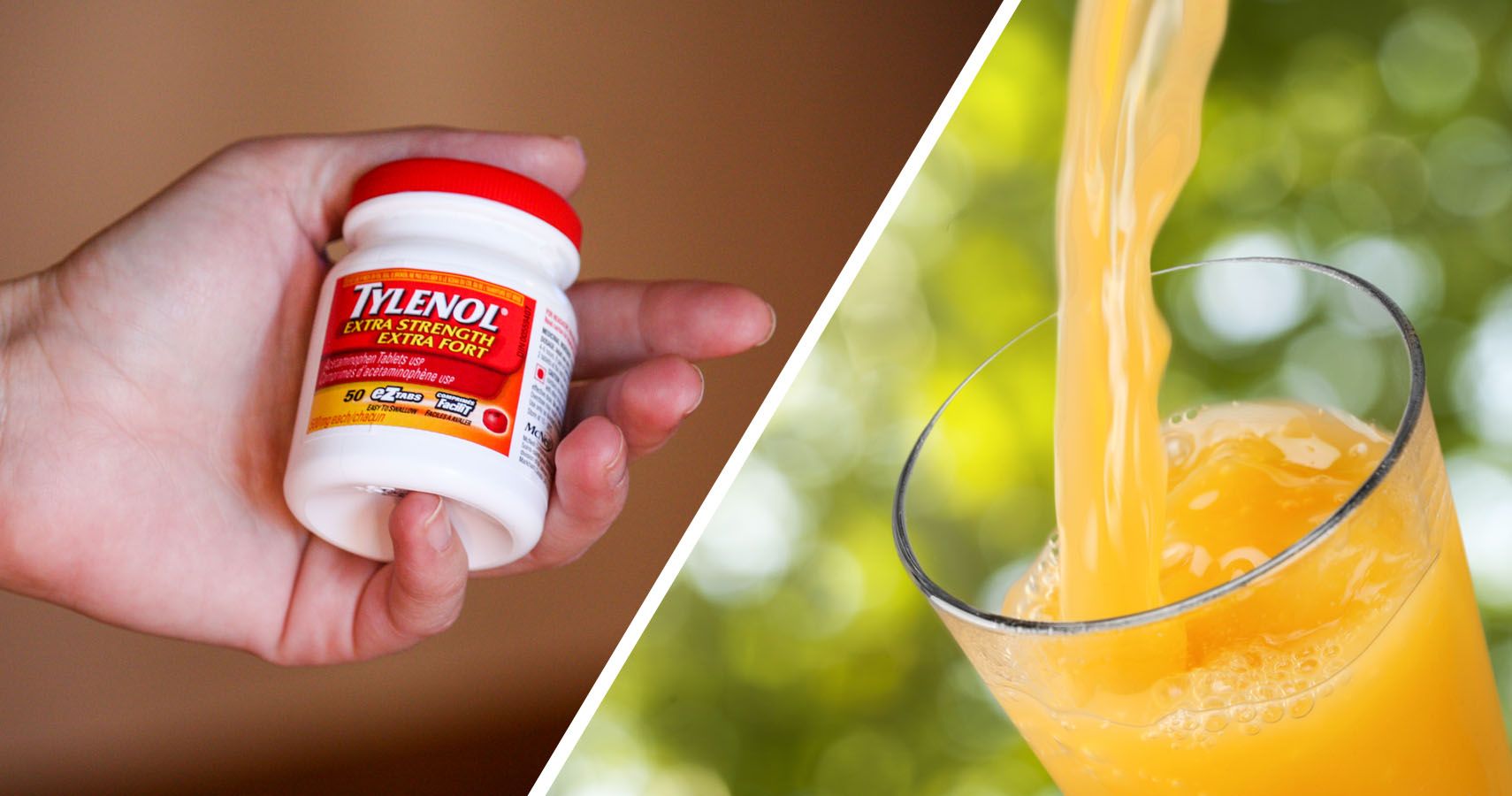Tips on Adding Acetaminophen to Milk or Juice
Paracetamol, better known as the over-the-counter drug Tylenol, can be used as an antipyretic and pain reliever for children. They make special formulas for infants and children. However, if you have a child who does not accept the drug, even if it is flavored, you can mix it in juice or milk. However, here is a guide on what you should know about mixing.
First, know your child’s dosage
Image credit: Crello
The very first thing you should know is the dosage your child should be receiving of the drug. Usually it comes down to weight. If you are unsure of your child’s exact weight, you can call their pediatrician to see what they last weighed and ask them what dosage they think you should take. Your child’s pediatrician will know what is best for your child.
Try a syringe or cup
Before adding the drug into any other substance, try giving it to them using the cup or syringe that came with the paracetamol. While you can try to tell them it can be tasty, try not to play it off as a “treat” as this can backfire in the future if the child finds the drug and wants to help themselves.
Talk to a pharmacist
Image credit: Crello
Pharmacists are authorized to answer questions such as: B. Whether it is okay to mix acetaminophen with milk or juice. While other medications cannot be mixed with other liquids, acetaminophen may be fine, but it is imperative for your children’s health that you speak to a doctor before putting the dose in a cup of grape juice or glass of milk.
Answers may vary, always consult a professional
If the pharmacist you spoke to gave you the green light to mix some paracetamol with milk or juice, you need to make sure that it is done correctly. Also, be sure to ask if there are any juices to stay away from, such as grapefruit. Make sure you give them the correct dose as teaspoons can easily be mistaken for tablespoons. So it is very important to pay attention to the label.
As soon as you have the medicine ready
Image credit: Crello
When you have the correct dosage and the pharmacist says you can mix it with juice or milk, ask your child what better they would like, a glass of milk or some juice. Make sure the juice or milk is at room temperature when you add the medication. Stir the mixture.
Then let your child drink it. It is important to make sure that your child drinks all of the milk or juice, otherwise they will not get the full dose of paracetamol that is intended for them. Put a little more juice or milk in the glass and swirl it around the glass and let your child drink it. This is to ensure that no medicine is left behind.
Can you take the medication instead and drink water right after?
If you can get your child to take the medication without having to mix them with anything, so much the better. Usually, after taking acetaminophen, it’s okay to offer them something to drink that can easily wash the taste out of their mouths that they don’t like. Plus, it will be better for your child to stay hydrated as well.
Image credit: Crello
While it is best to get your child to take the medicine straight from the dosing cup or syringe. However, if you need to mix it with milk or juice, always contact a pharmacist first as they can tell you if you can.
Sources: Medicines for Children, Child Health
Continue reading
About the author
Jennifer Corter
(400 published articles)
Jennifer is a contributing writer for Moms. She is a housewife, author and blogger. She has written two books on how to use the power of positivity to deal with living with chronic illness. She is also a advocate for maternal mental health and is a frequent contributor to the topic.
More from Jennifer Corter



Comments are closed.